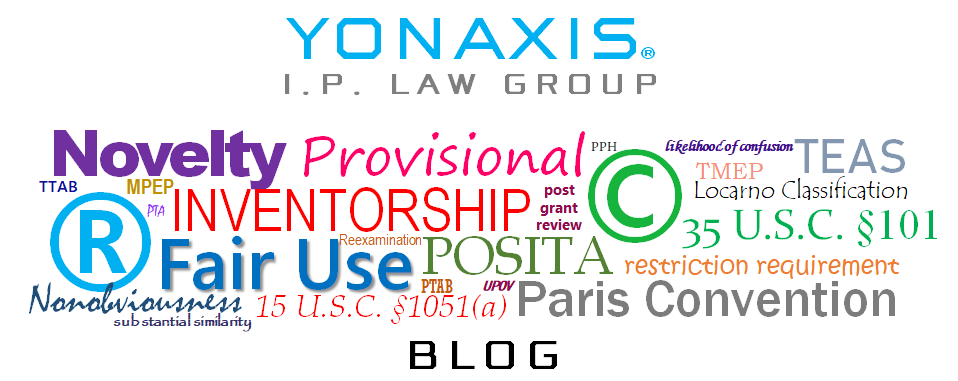The Takings Clause of the Fifth Amendment states that private property “shall not be taken for public use, without just compensation.”[1] Intellectual property rights – patents, trademarks, copyrights, and other IP – have long been considered property rights. This belief, however, has been tested by the Supreme Court’s reluctance to specifically define IP as a property right, and making the argument in judicial proceedings appear to be a losing one. Below is a look at the three major IPs and failure of the takings argument in various court decisions.
Patent Grants
The Court of Appeals for the Federal Circuit recently decided Christy, Inc. v. United States.[2] The unanimous Fed Circuit panel, consisting of Judges Lourie, Reyna, and Hughes, affirmed the decision of the Federal Court of Claims, holding that cancellation of a patent resulting from an inter partes review (IPR) proceeding is not a taking under the Fifth Amendment, consistent with its recent Golden decision.
In Golden v. United States,[3] patent owner had argued patent claims deemed invalid by PTAB in an IPR proceeding was an unconstitutional taking, as a governmental interference with its “reasonable investment-backed expectations” resulting in a reduction in patent value. However, the Fed Circuit disagreed:
Golden, as a patent owner, has “always had the expectation that the validity of patents could be challenged in district court” or before the PTO. Under Celgene, subjecting patents to inter partes review proceedings is not an unconstitutional taking under the Fifth Amendment.
The Golden panel, consisting of Judges O’Malley, Mayer, and Wallach, referred to Celgene Corp. v. Peter,[4] decided by the Fed Circuit in 2019. In Celgene, the Fed Circuit affirmed the PTAB’s decision finding two patents invalid as obvious, and held that retroactive application of an IPR is not an unconstitutional taking. The panel opined that a property right was not implicated:
[B]ecause Celgene’s patents were granted subject to similar reexamination standards, [] the differences between IPRs and district court proceedings that Celgene identifies do not create a constitutional issue . . . Patent owners have always had the expectation that the validity of patents could be challenged in district court. For forty years, patent owners have also had the expectation that the PTO could reconsider the validity of issued patents on particular grounds.
The Christy/Golden/Celgene line of cases follows the general theme that patent rights are only “public franchises,” as held by the U.S. Supreme Court in its Oil States decision.[5] The Court did not state definitively that patent rights are property rights, although the Court did mention in passing:
[O]ur decision should not be misconstrued as suggesting that patents are not property for purposes of the Due Process Clause or the Takings Clause.
This leaves open that the Court may address this issue in an upcoming term. However, in the interim, it is clear that the Fed Circuit is unwilling to entertain patent invalidity through IPRs such that it is a taking of a property right protected under the Fifth Amendment.
Trademark Registrations
In Pro-Football, Inc. v. Blackhorse,[6] the District Court for the Eastern District of Virginia determined that a trademark registration is not a property right to implicate the Takings Clause. Relying on Fed Circuit precedent, the district court held that a trademark registration, unlike the underlying trademark, is not a property right under the Fifth Amendment.[7] The Fourth Circuit vacated and remanded the Blackhorse appeal based on the Supreme Court’s Tam decision unrelated to the takings argument.
https://www.supremecourt.gov/opinions/16pdf/15-1293_1o13.pdf (tam)
Copyright Registrations
In Estate of Graham v. Sotheby’s, Inc.,[8] the District Court for the Central District of California held that a reseller of a copyrighted work did not have a vested property right to implicate the Takings Clause.
The Ninth Circuit refused to take up the takings argument, but left open that resales made before the enactment of the CRRA in 1976 could possibly be a constitutional taking.[9]
Based on court decisions, issued patents and registered trademarks and copyrights are not property rights. However, these decisions only determined the public grants validating those IP rights were not property rights; the underlying IP rights were not at-issue in these cases. It would ultimately require a decision by the U.S. Supreme Court to finally determine, and hopefully correctly, that IP rights are, indeed, property rights, and by extension a taking under the Fifth Amendment.
[2] ___F.3d___ (Fed. Cir. 2020), aff’g 141 Fed. Cl. 641 (2019).
[3] 955 F.3d 981, 989 (Fed. Cir. 2020).
[4] 931 F.3d 1342 (Fed. Cir. 2019), reh’g en banc denied; cert. denied, 591 U.S.___ (2020).
[5] See Oil States Energy, LLC v. Greene’s Energy Group, LLC, 138 S. Ct. 1365, 1373 (2018).
[6] 112 F. Supp. 3d 439 (E.D. Va. 2015), vacated and remanded in light of Matal v. Tam, 137 S. Ct. 1744 (2017).
[7] See In re Int’l Flavors & Fragrances Inc., 183 F.3d 1361, 1366 (Fed. Cir. 1999).
[8] 178 F. Supp. 3d 974 (C.D. Cal. 2016).
[9] See Close v. Sotheby’s, Inc., 894 F.3d 1061, 1075 (9th Cir. 2018).
